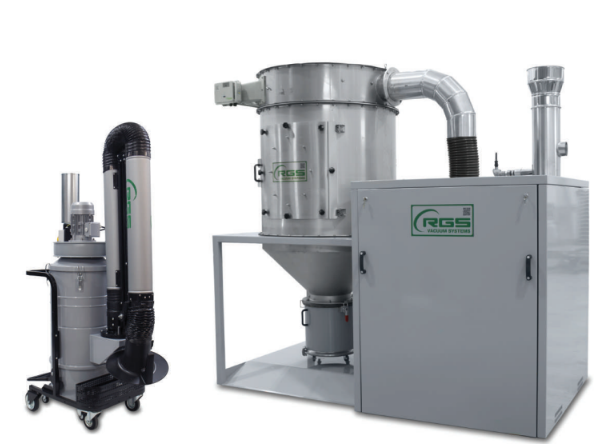Why Dust and Powder Management Systems Are Essential for Your Industrial Operations
In today’s fast-paced industrial environment, effective dust and powder management is critical not just for maintaining a clean workspace but also for ensuring the safety, health, and efficiency of your operations. Whether you're in manufacturing, pharmaceuticals, food processing, or any other industry, the control and management of airborne dust and powder are key to minimizing risks, improving productivity, and adhering to regulatory standards.
This is where a Dust and Powder Management System comes in. These specialized systems are designed to capture, collect, and manage dust and powder particles at their source, preventing contamination, improving air quality, and safeguarding your workforce. If you’re looking for a comprehensive solution to handle dust and powder in your facility, RGS provides the cutting-edge technology you need.

The Importance of Dust and Powder Management
Dust and powder may seem harmless, but they can present a variety of risks in industrial settings. From health concerns to operational inefficiencies, failing to manage these particles effectively can result in significant problems for your business.
How Dust and Powder Management Systems Work
Dust and Powder Management Systems from RGS offer a comprehensive solution to these challenges by effectively collecting and managing airborne particles. These systems typically consist of several key components, including:
These systems are customizable and can be tailored to suit the unique needs of your facility, ensuring that you meet industry-specific standards and regulations.
The Benefits of Dust and Powder Management Systems
- `
- Enhanced Air Quality: By effectively capturing dust and powder at its source, these systems significantly improve the air quality in your facility. Reducing airborne particles minimizes respiratory risks for your employees and creates a cleaner, healthier environment for everyone.
- Increased Workplace Safety: Dust and powder management systems are a vital component of any workplace safety program. By preventing the accumulation of combustible dust and controlling hazardous particles, these systems help reduce the risk of fire, explosions, and workplace accidents.
- Regulatory Compliance: Many industries are subject to strict regulations concerning dust control and air quality. A well-designed dust and powder management system helps you comply with these regulations, avoiding penalties, legal issues, and potential shutdowns. Whether you're in food manufacturing, pharmaceuticals, or chemical processing, having a robust system in place ensures you meet industry standards.
- Cost Savings: Maintaining equipment and machinery is costly, especially when dust and powder cause premature wear and tear. By minimizing dust accumulation, these systems help reduce maintenance costs, improve equipment longevity, and prevent costly downtime. This leads to significant cost savings over time and better overall operational efficiency.
- Improved Product Quality: In industries like pharmaceuticals and food processing, dust and powder contamination can lead to defective products and loss of quality control. A dust and powder management system ensures that your products remain clean, uncontaminated, and up to the required standards, which is crucial for consumer safety and maintaining a strong reputation.
- Sustainability: Dust and powder systems can also contribute to your business’s sustainability efforts. By efficiently collecting and managing waste materials, you reduce the amount of dust and powder that ends up in landfills. Additionally, proper disposal and recycling processes help you minimize environmental impact and meet sustainability goals.
Why Choose RGS?
At RGS, we specialize in providing high-performance dust and powder management systems tailored to your industry’s specific needs. Our systems are designed to improve air quality, ensure safety, and boost productivity by managing dust and powder effectively. With a focus on durability, efficiency, and regulatory compliance, our systems are an investment that ensures long-term results.
Our team of experts works closely with you to understand your facility’s unique challenges and recommend a solution that meets your exact requirements. From installation to ongoing support, we are committed to helping you maintain a cleaner, safer, and more efficient workspace.
Conclusion
A Dust and Powder Management System is more than just a cleaning solution—it’s an essential tool for ensuring the health, safety, and operational efficiency of your industrial facility. By reducing airborne particles, preventing contamination, and maintaining equipment, these systems are a crucial investment for businesses across various sectors.
Don’t let dust and powder control become an afterthought. Partner with RGS to implement an effective, reliable dust and powder management system tailored to your facility’s needs. Visit us at RGS to learn more about how we can help you improve air quality, comply with regulations, and keep your facility running at its best.
© Copyright 2024 RGS Vacuum Solutions.


